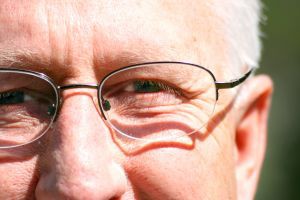What State of Mind is Needed for a Will to be Valid?
What Mental Ability Must a Person have to Draft a Last Will and Testament?
Toronto Wills Fight Lawyer
One of the most common legal grounds for challenging the validity of a last will and testament is by alleging that the person who made the last will and testament (this person is called “the testator”) did not have the mental ability or mental capacity to legally make the last will.
In legal terminology, this legal requirement for mental ability is referred to as testamentary capacity. In order to establish the validity of a last will and testament the person seeking to uphold the last will must prove, among other things, that the testator had the testamentary capacity required by law to make a valid last will and testament.
What is Testamentary Capacity?
The definition of testamentary capacity has been the subject of many lawsuits in Ontario and in Canada.
A Sound Mind
In the case of Hall v. Bennett Estate the Court of Appeal for Ontario dealt with the question of the mental ability that is needed to make a valid last will and testament. The Court referred to the general principle that a testator must have “a sound disposing mind” to make a valid last will and testament. The Court said that a “sound disposing mind” is where a testator:
- understands the nature and effect of a last will and testament;
- recollects the nature and extent of his or her property;
- understands the extent of what he or she is giving under the last will and testament;
- remembers the persons that he or she might be expected to benefit under his or her last will and testament; and
- where applicable, must understand the nature of the claims that may be made by persons he or she is excluding from the last will and testament.
Can a Person with Psychotic Delusions Make a Last Will and Testament?

In the recent case of Brydon v. Malamas the British Columbia Supreme Court undertook a thorough analysis of the law with respect to the issue of testamentary capacity. In that case the testator, Stella, had suffered from schizophrenia since 1975 and had made a will in 1995 leaving her house and one half of the residue of her estate to the Plaintiff (the testator’s grandniece and goddaughter). In 2004 Stella spent several months in the psychiatric ward of a hospital. When she returned home, her sister Mary, the Defendant, moved into Stella’s home. Sometime later, Stella made a new last will and testament and made Mary the main beneficiary, and excluded the Plaintiff from her new will. She also gave Mary a number of inter vivos gifts ( gifts which take affect during the testator’s lifetime).
When Stella died, the Plaintiff challenged the validity of the new will and the inter vivos gifts, claiming that Stella lacked the testamentary capacity to create the second last will and testament. The Court held that Stella was affected by psychotic delusions at the time she made her second will, which affected her mental processes and caused her to disinherit the Plaintiff. Accordingly, the Court ruled that Stella lacked testamentary capacity in making the second will, and therefore the last will and testament was invalid.
In considering the issue of psychotic or insane delusion, the Court in Brydon referred to a number of cases on this issue including the Supreme Court of Canada of decision from 1902 in the case of Skinner vs. Farquarson. In that case, the testator had made a last will and testament which greatly favoured his son and his wife. A few years later he made a new will, in which he reduced what he had originally left to his wife and son. Before he signed the second last will and testament , however, the testator accused his wife and son of committing incest. It was demonstrated to the Court that there was no truth to that accusation.
In that case the Court provided the following guidelines for determining whether a testator suffers from psychotic delusions. The court stated: “…an insane delusion is defined as to be a belief of things as realities which exist only in the imagination of the patient . . . Delusion is insanity where one persistently believes supposed facts (which have no real existence except in his perverted imagination) against all evidence in probability and conducts himself however logically upon the assumption of their existence.”
In contrast to Brydon, there are many cases in which the courts have found that despite having questionable beliefs or opinions, a testator nevertheless does possess the necessary capacity to make a last will and testament. For example, in Royal Trust Co. v. Ford, the Supreme Court of Canada upheld the validity of a last will and testament which was challenged based on testamentary capacity. In that case a testator had made a last will and testament in 1933 in which he left most of his estate to his son. He made a new will in 1958, which left only a small part of his estate to his son. The son challenged the second will, on the grounds that his father had an insane or psychotic delusion that he was not the natural father of his son. On appeal, the Supreme Court of Canada restored the trial judgment, and agreed with the trial judge that no insane delusion was shown to exist. [The trial judge] found that the testator really believed the son to be legitimate even though he expressed doubt. Although the 1933 last will and testament was largely in the son’s favour, a separation for 31 years prior to the 1958 last will and testament and the reception of bad reports about his son were sufficient reason for a sane testator to change his last will and testament. Furthermore, a legacy of $50,000 was inconsistent with a testator having a poisoned mind resulting in the complete rejection of his son, and consistent only with belief in his legitimacy or, at most, doubt. Whether the testator’s suspicions were reasonable or not, they were such as a sane man could hold. The essential finding of fact in Royal Trust Co was that the testator did not believe that he was not the natural father of his son (and therefore did not believe in the truth of a fact that was proved to be false). The mere expression of doubt as to the truth of a fact (even a fact which is obviously true) could not qualify as a psychotic delusion.
Thus, the questions of whether a testator has or had the capacity to make a valid last will and testament is highly fact specific and must be considered on a case by case basis. If there is any question as to whether the testator has ability to understand the choices he or she is making or to appreciate the consequences of those choices, it may be useful to consult with a professional “capacity assessor” who can provide a professional opinion as to the capacity of the testator, or the lack thereof. This is recommended especially when there are indications of undue influence or where suspicious circumstances exist.
It is clear from the law that the test to be met to prove testamentary capacity is a high one and the onus falls on the party trying to uphold the last will and testament. The law on testamentary capacity is strict and for good reason. The making of a last will and testament is an important activity and one that is often engaged in by a person who is approaching the end of his or her life. It is also not uncommon that a person at that stage of life may suffer from some form of mental impairment which may not be apparent to people who are not closely associated with the person. Accordingly, it is crucial that the issue of testamentary capacity be closely examined and well documented at the time the last will and testament is prepared, in order to avoid conflict and uncertainty down the road.



![article-37 By Sachinwarankar (Own work) [CC BY-SA 4.0 (http://creativecommons.org/licenses/by-sa/4.0)], via Wikimedia Commons](https://zvulony.ca/wp-content/uploads/2010/12/Article-37-180x180.jpg)




